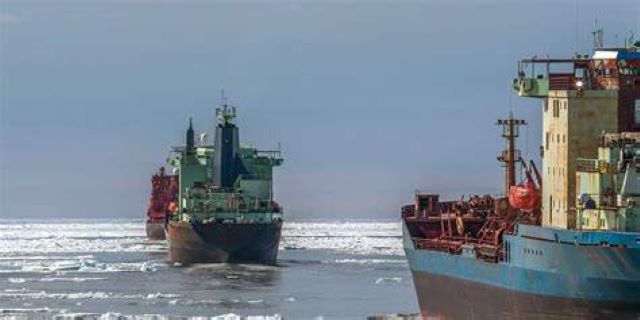A petrochemical tanker has been attacked in the Red Sea by projectiles fired from Yemen, with the Houthis claiming responsibility, saying they launched a drone attack on a cargo vessel.
The M/V Swan Atlantic, a chemical and oil products tanker, was hit on Monday in the southern Red Sea by multiple projectiles launched from Houthi-controlled territory, United States officials said. The Iran-backed group has attacked numerous vessels over recent weeks, raising international concern over the threat to shipping in the region and to the wider global economy during the Israel-Gaza war.
Owned by Norway’s Inventor Chemical Tankers, the ship was struck by one projectile. There were no injuries, according to the company.
CEO Oystein Elgan told the Reuters news agency that the ship’s water tank had been damaged but all the vessel’s systems were operating normally. Inventor Chemical Tankers has no ties to Israel, he stated.
Operator Uni-Tankers said the crew had brought a small fire under control. The ship was carrying vegetable oils and is sailing to Reunion Island.
A report by British maritime authorities earlier on Monday suggested at least one other incident in the area of Yemen’s Mokha port although that remains unconfirmed.
The destroyer USS Carney, which has been on patrol in the Red Sea to intercept drones and missiles in recent months, responded to the M/V Swan Atlantic’s distress call, US officials said.
The US military’s Central Command said on Saturday that the USS Carney shot down 14 drones launched by Yemen’s Houthis over the Red Sea.
Economic impact
The Houthis, who rule much of Yemen, said the attacks are a show of solidarity with Palestinians. They have also fired drones and missiles at Israel. The group, which like Hamas is aligned with Iran, has pledged to continue until Israel stops attacking Gaza.
The threat risks disturbing the global economy. Several shipping companies have announced they will suspend all journeys through the Red Sea due to the attacks.
About 40 percent of international trade passes through the narrow strait between Yemen and northeast Africa, which leads northwards to the Red Sea, Israel’s southern port facilities and the Suez Canal.
The increased threat has caused shipping insurance costs to jump by tens of thousands of dollars a day and raised oil prices.
Oil major BP temporarily paused all transit through the Red Sea citing security concerns. The alternative route for ships avoiding the Suez Canal is to take the much longer trip around Africa.
The US announced last week that it was in talks with other countries to set up a task force to protect the trade route. An Italian source on Monday reported that the country is considering joining a naval coalition to patrol the Red Sea.
The Houthis have pledged to continue the attacks until Israel halts its bombardment of Gaza. However, in an initial indication of possible moderation, the group said on Saturday that real steps to ease the humanitarian crisis would contribute to “reducing the escalation”.__Al Jazeera





